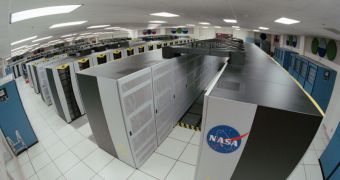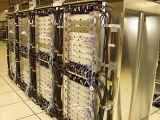Yahoo's supercomputing cluster, codenamed M45, features 4,000 processors, 3 terabytes of random access memory and can do more than 27 trillion calculations per second. It is used to perform search-related tasks on the Internet, such as scanning webpages, caching them or finding a subject then creating indexes.
Far from being the ultimate super-machine, the M45 star cluster is one of the world's 50 fastest computing systems. The Big Ben system, located in the premises of the Pittsburgh Supercomputing Center can perform 10 trillion calculations per second, but the heavy artillery is just about to kick in. Argonne National Laboratory is currently working on IBM's Blue Gene/P, aimed to triple the speed of the current fastest supercomputer. The system will become operational next summer and will be able to perform 1,000 trillion calculations per second.
The Carnegie Mellon University has joined an educational partnership created by the nonprofit Apache Software Foundation, which is meant to encourage collaborative software development. The university will be the first educational institution to benefit from the M45 cluster for working on photo enhancement algorithms as well as on language translation.
"We are really quite excited by it," said Randall E. Bryant, dean of the university's School of Computer Science. He also added that the M45 connection would dramatically decrease computing time. "For a process that now takes weeks of computer time, using Yahoo's M45 will take minutes", stated Bryant. The connection will be set up in a trailer at Yahoo's headquarters in Santa Clara and will be available for faculty members or graduate students in a few weeks.
The Carnegie Mellon University works closely with hardware suppliers such as IBM and Google to achieve computing power for their undergoing research projects in linguistics and photo analysis. Professor Alexei Efros runs a program for editing photos by searching for bits of similar pictures available in the virtual space.
Yahoo vice president and head of academic relations says that "Yahoo is sharing access to its supercomputer with leading universities as a way to solve some of the most critical computing challenges facing our industry". According to Bryant, the Carnegie Mellon University is the first to benefit from Yahoo's computing power as they have been the first to ask for this kind of services. More universities are expected to join the program to enhance curriculum and research.

 14 DAY TRIAL //
14 DAY TRIAL // 
